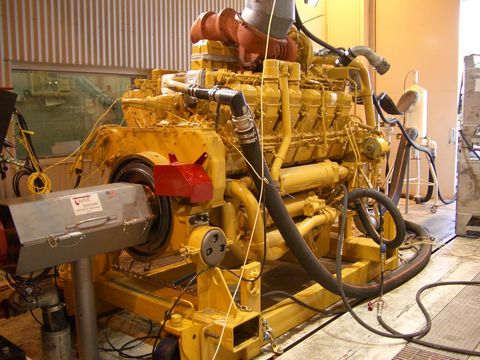
Diesohol
Diesohol
Diesohol Background
Diesel particulate matter (DPM) is a component of diesel engine exhaust emissions that has significant negative impacts on human health. DPM smaller than 2.5 microns in size is of the greatest concern as it can be inhaled deep into the lungs where it can lead to disease and ultimately premature death.
Diesohol is a blend of diesel fuel and ethanol. DPM emission from light and heavy duty diesel engines is significantly reduced when operating on diesohol compared to diesel fuel.
Diesohol Technology
Ethanol normally will not blend with diesel fuel. The diesohol technology involves introducing an emulsifier that allows ethanol and diesel fuel to be blended and not separate over time. Blends containing 15% by volume of ethanol can be used interchangeably with diesel fuel in existing diesel engines with no or only minor adaptation. Moreover, diesel engines can be readily adapted to operate on blends containing up to 30% by volume of ethanol.
A comprehensive evaluation of diesohol in a heavy duty engine has been conducted by BHP Billiton Mitsubishi Alliance (BMA) in association with Caterpillar and BP Australia.
Also, field trials of diesohol have been conducted in:
- Stockholm, Sweden - cold weather trial
- Santiago, Chile - high altitude trial
- Bangkok, Thailand - high humidity trial
- Sydney, Australia - Sydney Buses
- Sarina and Hay Point, Australia - Queensland EPA and BMA
- Canberra, Australia - Federal and ACT Governments
- Argentina - National and Provincial Governments
- Malawi - Lohnro Sugar
- Papua New Guinea - PNG Government
Diesohol Benefits
- Decreases DPM emission by approximately 30%
- Decreases smoke emission by approximately 50%
- Decreases emission of oxides of nitrogen (NOx)
- Decreases emission of CO2 (greenhouse gas)
- Increases engine thermal efficiency
- Improves balance of oil-refinery output to market demand

Caterpillar 51.8 litre turbocharged V12 engine used in BMA heavy duty engine test
Diesohol Future
Uptake of diesohol in Australia will require the sustainable supply of ethanol in large volumes. For context, to supply 10% of Australia’s diesel fuel demand as ethanol would require a 5-fold increase in current ethanol production capacity. This demand could not be sustainably met by first generation ethanol production. Ethtec is in the advanced stages of demonstrating a commercially viable second generation ethanol production process that is implementable across multiple industry sectors in Australia and abroad.
About Ethtec
Ethtec is an Australian company at the leading edge of new technology development for cellulosic ethanol production.
©Copyright 2021 Ethanol Technologies. All Rights Reserved.